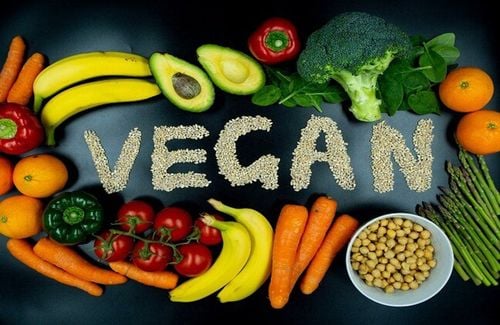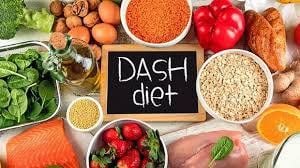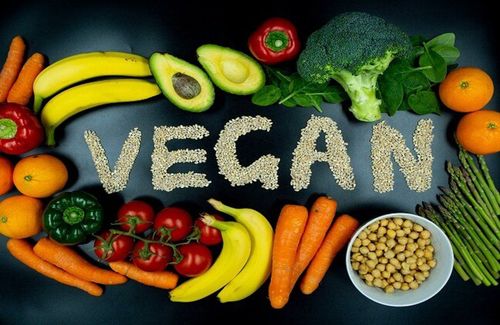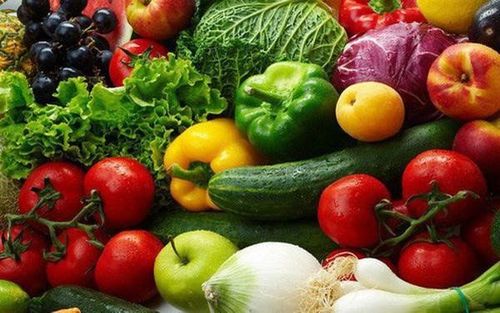This is an automatically translated article.
The debate about vegetarianism has gone through many ages from time immemorial. This debate shows that some vegans report good health, while others experience physical decline. With the advancement of science, we are slowly learning why people react differently to diets with little or no animal foods.
1. Convert vitamin A
Vitamin A is one of the most important nutrients. It functions in helping to maintain vision, supporting the immune system, promoting healthy skin, supporting normal growth and development, and is also important for reproductive function and Other functions.Contrary to popular belief, plant foods do not actually contain vitamin A (known as retinol). Instead, they contain vitamin A precursors, the most famous of which is beta carotene. In the intestines and liver, beta carotene is converted to vitamin A by the enzyme beta - carotene - 15, 15′ - monooxygenase (BCMO1) - which is a process by which your body makes retinol from plant foods like: Carrots and carrots. potato .
In contrast, animal foods provide vitamin A in the form of retinoids, which do not require conversion to BCMO1. In that case, certain genetic mutations can cut down on BCMO1 activity and interfere with carotene conversion, making plant foods inadequate as a source of vitamin A.
For example, two common polymorphisms in the BCMO1 gene (R267S and A379V) can together reduce beta carotene conversion by 69%. A less common mutation (T170M) can reduce conversions by about 90% in carriers of these two copies.
In all, about 45% of the population carry this polymorphism in the BCMO1 gene which causes them to have low responsiveness to beta carotene resulting in reduced conversion. Furthermore, there is a host of non-genetic factors that can also impair carotene conversion and absorption, including low thyroid function, compromised gut health, alcoholism, liver disease, and deficiency zinc. If any of these are linked to poor gene conversion, the ability to produce retinol from plant foods could decline even more.
So why is such a common problem causing a mass epidemic of vitamin A deficiency? Simple: In the Western world, carotenoids provide less than 30% of people's vitamin A intake, while animal foods provide more than 70%. So, an omnivorous BCMO1 mutant can often get ahead of vitamin A from animal sources, all the while being oblivious to the carotene battle going on inside their body. But for those who stay away from animal food products, the effects of the disordered BCMO1 gene will be apparent and ultimately detrimental to the body.

Người ăn chay thường bị thiếu vitamin A
When people follow a vegetarian diet, they can eat carrots until they have an orange color on their face, which leads to a lack of absorption, but they feel it seems to provide enough for the body. This may be explained by the fact that carotene levels are simply elevated (hypercarotenemia), while vitamin A is severely reduced (hypovitaminosis A), leading to a deficiency between seemingly adequate intakes. Even for low-conversion vegetarians, the vitamin A content of milk and eggs may not be enough to prevent a deficiency, especially when absorption problems also occur.
So, not surprisingly, the consequences of vitamin A deficiency mirror the problems reported by some vegetarians. Thyroid dysfunction, night blindness and other vision problems, weakened immunity (more colds and infections), and problems with tooth enamel can all stem from a vitamin A status. least.
Whereas vegetarians with normal BCMO1 function, efficient vegetarians with a variety of carotene-rich dishes can often produce enough vitamin A from plant foods to stay healthy.
2. Gut microbiome and vitamin K2
The gut microbiome is the collection of organisms that live in the colon that perform a number of tasks from synthesizing nutrients to fermenting fiber and neutralizing toxins. There is a lot of evidence that the gut microbiome is flexible, with bacterial populations varying with diet, age and environment. But a lot of the resident bacteria are also inherited or established at an early age.

Hệ vi sinh vật đường ruột thực hiện một số nhiệm vụ từ tổng hợp chất dinh dưỡng đến lên men chất xơ và trung hòa độc tố
For example, higher levels of Bifidobacteria are associated with genes for persistence of lactase (indicating a genetic component of the microbiome) and babies born vaginally will have their first set of bacteria in their lives. birth canal, resulting in a different bacterial composition than babies born via cesarean section.
In addition, certain injuries to the microbiome, such as eliminating bacteria from antibiotics, chemotherapy or certain diseases... can cause permanent changes to the microbiome. previously healthy intestinal flora. There is some evidence that certain bacterial populations never return to their former state after antibiotic exposure, but instead stabilize to a lesser extent.
In other words, despite the overall adaptability of the gut microbiome, you may still be stuck with certain features due to circumstances beyond your control.
So why has this become so important to vegetarians? Your gut microbiome plays an important role in how you respond to different foods and synthesize specific nutrients, as some microbial communities may be friendly. with vegetables than others.
==> Common Vegetarian Mistakes
For example, certain gut bacteria are needed to synthesize vitamin K2 (menaquinone) which is a nutrient with unique benefits for bone health (including teeth), insulin sensitivity and heart health, as well as prostate and liver cancer prevention. Major K2 producers include several species of Bacteroides, species of Prevotella, Escherichia coli and Klebsiella pneumoniae, as well as a number of gram-positive, anaerobic, non-spore bacteria.
Unlike vitamin K1, which is commonly found in green leafy vegetables, vitamin K2 is found almost exclusively in animal foods (the exception being a fermented soy product called natto).
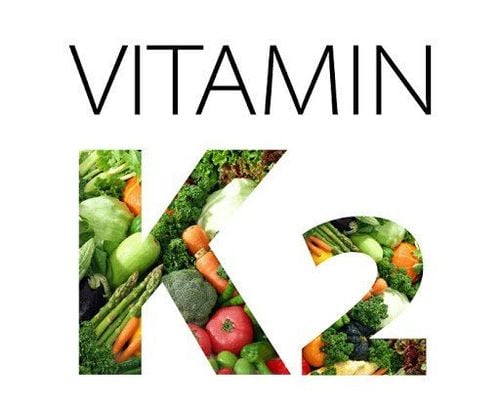
Vitamin K2 quan trọng đối với cơ thể
Studies have demonstrated that the use of whole antibiotics will significantly reduce vitamin K2 levels in the body by killing the bacteria responsible for K2 synthesis. And another intervention study found that when participants were fed a plant-based, low-meat diet, the main determinant of K2 levels in their stools was the proportion of Prevotella species , Bacteroides and Escherichia/Shigella in their intestines.
So, if someone is deficient in the microbiome of vitamin K2-producing bacteria, whether the cause is genetic, environmental or antibiotic use along with the exclusion of animal foods from the diet. diet, vitamin K2 levels can drop dramatically.
Although studies on this topic are few, this may suggest that vegetarians will not benefit from the gift that vitamin K2 has to offer. What's more, they're more likely to experience dental problems, a higher risk of fractures, and reduced protection against diabetes, cardiovascular disease, and some cancers.
In contrast, people with a strong vitamin K2 microbiome (or someone else who identifies as a natto gourmet) can get enough of this vitamin in a vegan diet.
3. Amylase and starch tolerance
While there are certainly exceptions, a meat-free diet tends to be higher in carbohydrates than a completely omnivorous diet. In fact, some of the most well-known plant-based diets revolve around the 80% carb (which comes mainly from whole grains, beans, and tubers), and the heart-healthy diet. Why is there such a significant difference? The answer may once again be hidden in genes and yeast in saliva.
Saliva contains alpha-amylase which is an enzyme that splits starch molecules into simple sugars through hydrolysis. Depending on how many copies of the amylase gene (AMY1) the body carries, along with lifestyle factors such as stress and circadian rhythms, amylase levels are virtually detectable up to 50 % of total protein in saliva.
In general, people from cultures that use a lot of starch in the diet (such as the Japanese) tend to carry more copies of AMY1 (and have higher salivary amylase levels) than people from populations have a history of being heavily dependent on fats and proteins. In other words, the AMY1 transcripts appear to be related to the ancestral traditional diet.
Why this is important: Amylase production strongly influences how the body metabolizes starchy foods and whether those foods have an impact on blood glucose levels. When people with low amylase consume starches (especially refined forms), they experience longer-lasting blood sugar spikes than those with naturally high amylase levels. This is not surprising, because people with low amylase production have a higher risk of metabolic syndrome and obesity when eating a standard high-carbohydrate diet.
While amylase problems are relevant to anyone with a plant-based diet that focuses on grains, legumes, and tubers and is likely to bring up any potential carb intolerance. For people with low amylase levels, radically increasing carbs can have devastating consequences: poor blood sugar regulation, low saturation, and weight gain. But for people whose metabolism produces a lot of amylase to handle a high-carb diet, whole foods are an effective vegetarian way for them.
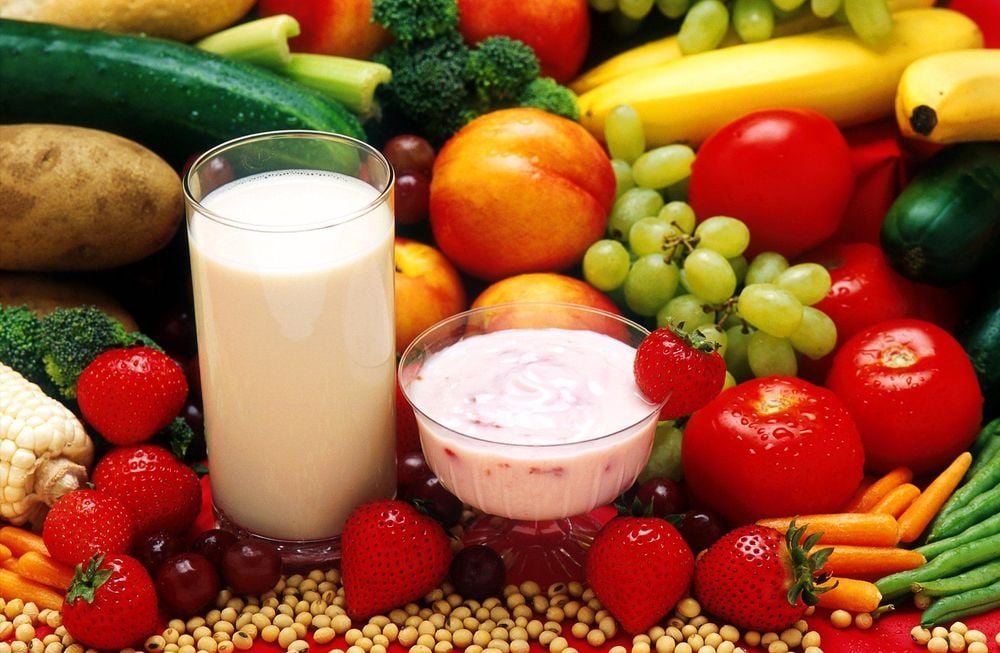
Cần tìm hiểu thông tin để có cách ăn chay hiệu quả
4. Activities of PEMT and Choline
Choline is an essential but often overlooked nutrient involved in metabolism, brain health, neurotransmitter synthesis, lipid transport, and methylation. It has received as much attention as several other nutrients (omega-3 fatty acids and vitamin D). In fact, choline deficiency is a major contributor to fatty liver disease, which is a skyrocketing problem in Western countries.Furthermore, choline deficiency can also increase the risk of neurological diseases, heart disease and developmental problems in children. Overall, the foods rich in choline are animal products such as egg yolks and liver that consistently top the charts. However, with a wide range of plant foods, the choline content is quite modest. Choline can be produced by the body with the enzyme phosphatidylethanolamine -N-methyltransferase (PEMT), which methylates a molecule of phospha-tidylethanolamine (PE) to a molecule of phosphatidylcholine (PC). In many cases, small amounts of choline provided by plant foods, combined with choline synthesized via the PEMT pathway, may be sufficient to meet the body's choline needs without the need for eggs. or meat.
But for vegetarians, it's not always favorable for choline compounds. Although efforts have been made to establish adequate intake (AI) for choline, it can vary widely from person to person, and what appears to be enough choline in theory can still lead to a deficiency in the compound. reality.
One study found that 23% of male participants developed choline deficiency symptoms when consuming what is believed to be a person's full intake for a day of 550 mg. Or, another study also found that choline requirements during pregnancy and lactation change, as choline is transferred from mother to fetus or into breast milk.

Choline bị chuyển từ mẹ sang thai nhi
Furthermore, not everyone is equally able to produce choline. Because of estrogen's role in enhancing PEMT activity, postmenopausal women (whose estrogen levels are lower and choline synthesis is inhibited) need to eat more choline than women who are still in their reproductive years. reproductive age. And even common mutations in the folate pathway or the PEMT gene can make a low choline diet dangerous.
One study found that women carrying the MTHFD1 G1958A (folate-related) polymorphism were 15 times more susceptible to organ dysfunction on a low-choline diet. Or additional research shows that the rs12325817 polymorphism in the PEMT gene (found in about 75% of the population) significantly increases choline requirements, and people with the rs7946 polymorphism may need more choline to prevent it. fatty liver disease.
So what does this mean for people who are not taking high-choline animal foods from their diets? If someone has normal choline needs and has some good genes, it is possible to maintain adequate choline on a vegan diet. But for new or soon-to-be mothers, postmenopausal men or women with lower estrogen levels, as well as those with one of the many genetic mutations that increase choline requirements, eat only whole foods. Animals may not be getting enough of this important nutrient. In these cases, fasting can be a harbinger of muscle damage, cognitive problems, heart disease, and increased fat accumulation in the liver.
In summary, guidelines for vegetarianism are reasonable when genetic and microbiological factors are taken into consideration, such as a vegan diet where the necessary vitamin B12 supplementation is most likely to meet the need The body's nutrition... Science is increasingly supporting the idea that individuals can promote the body's response to different diets so that they are equipped with what they need from plant foods and mechanisms. great functioning of the body.
Please dial HOTLINE for more information or register for an appointment HERE. Download MyVinmec app to make appointments faster and to manage your bookings easily.
Reference source: healthline.com
SEE MORE
Vegetarianism is not a panacea How can a vegetarian diet ensure nutrition? Does a vegetarian diet during pregnancy have any effect?





